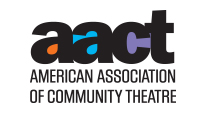Obtaining Rights
 The production rights for most plays and musicals are held by play publishers (also known as "royalty houses") on behalf of the authors -- which means that you cannot produce a copyrighted play or musical without written permission and the payment of royalties for that production.
The production rights for most plays and musicals are held by play publishers (also known as "royalty houses") on behalf of the authors -- which means that you cannot produce a copyrighted play or musical without written permission and the payment of royalties for that production.
It is true that most plays and musicals written before 1920 (Shakespeare or Gilbert & Sullivan, for example) are in the Public Domain, which means that they may be produced without payment of royalties. However, this refers only to the original script. If you use a modern translation of a Moliere comedy, for example, the new version may be protected by copyright.
- Many publishers offer AACT-member discounts on royalties and rentals--see our listing of current Discounts and Special Offers.
- In addition, AACT members are eligible for a special Community Theatre License from ASCAP and BMI for playing music used before or after a performance, or during intermission. (Not an AACT Organizational Member? Click here for more information on membership.)
6 essential steps to obtain production rights for a play or musical
|
|
| 1. |
Determine which play publishing house has the rights to the play you wish to produce. Most companies maintain an online listing that will indicate the titles they offer, and a royalty fee (also a rental fee for scripts and scores, in the case of musicals).
|
| 2. |
You should call the company to find out if the play is available for production. In some instances, plays are "restricted," which means that a particular play/musical is not available for production except for certain professional or semi-professional companies, or only in certain areas of the country.. Never assume that a play is available--always check with the play publishing house before you advertise or begin work on any production. |
| 3. |
Once you have determined that the play is not restricted, contact the publishing house--typically via an online form on their website. A request in writing may be required in some cases. Generally the following information is needed in order to provide a royalty quote:
|
| 4. | After your application is received, you will be sent a quote for the royalty fee, and if acceptable, a contract may be sent. Some companies however will simply send an invoice. |
| 5. | Be aware that for plays, the royalty fee covers performance rights only. Scripts are extra, and may also be ordered directly from the publishing house. |
| 6. | For musicals, the fees to produce a work are generally higher: a royalty fee, a rental fee (for scripts and scores), and a refundable security deposit. |
| Portions of the above content by courtesy of the College of Fine Arts - University of Texas at Austin | |
Using Copyright-Protected Music
- Music used before or after a performance, or during intermission, is handled by ASCAP or BMI, which have separate music libraries they represent. AACT-member companies are eligible for a discounted ASCAP license and BMI License to provide music in this setting.
- Copyrighted music used during a performance (such as recorded music within the play or during scene breaks) is not handled through ASCAP or BMI, and must be approved by the recording's individual rights holders. This can be a daunting task, since there is no central clearing house for this purpose. As a result, many theatre companies continue to use copyrighted music in their plays. However, this opens the company to a cease-and-desist order (a best-case scenario) or a lawsuit.




